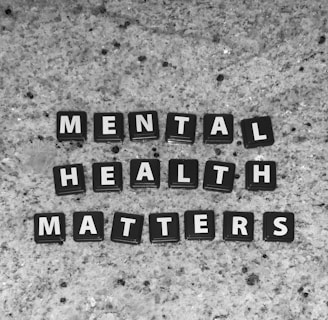Minority Mental Health Awareness Month
EDUCATIONHEALTH


Minority Mental Health Awareness Month, observed in July, aims to bring attention to the unique mental health challenges faced by minority communities. This observance seeks to raise awareness, reduce stigma, and improve access to mental health care for people from diverse racial, ethnic, and cultural backgrounds. Here’s a detailed description:
Historical Background
Origins: Minority Mental Health Awareness Month was established in 2008 by the U.S. House of Representatives to honor Bebe Moore Campbell, a renowned author and advocate for mental health awareness, particularly within the African American community.
Bebe Moore Campbell: Campbell was instrumental in advocating for mental health education and support, emphasizing the need for culturally competent care and the importance of addressing mental health disparities in minority communities.
Significance and Purpose
Awareness and Education: The month is dedicated to raising awareness about the mental health issues that disproportionately affect minority communities and the barriers they face in accessing care.
Stigma Reduction: One of the primary goals is to reduce the stigma associated with mental illness in minority communities, encouraging individuals to seek help without fear of judgment.
Cultural Competency: It emphasizes the importance of culturally competent mental health services that understand and respect the diverse backgrounds and experiences of minority populations.
Challenges Faced by Minority Communities
Stigma: In many minority communities, there is a significant stigma attached to mental illness, which can discourage individuals from seeking help.
Access to Care: Minority populations often face barriers to accessing mental health care, including lack of insurance, financial constraints, and a shortage of mental health professionals who understand their cultural context.
Disparities in Treatment: There are disparities in the quality of care received by minority individuals, including misdiagnosis and inadequate treatment.
Cultural Differences: Different cultural beliefs about mental health can impact how symptoms are perceived and treated, making culturally sensitive care essential.
Activities and Initiatives
Educational Campaigns: Organizations and mental health advocates run campaigns to educate the public about the specific mental health challenges faced by minority communities.
Workshops and Webinars: Various events, such as workshops, webinars, and panel discussions, are held to discuss mental health issues and share resources.
Community Outreach: Efforts are made to reach out to minority communities through local events, support groups, and collaboration with community leaders and organizations.
Social Media Campaigns: Hashtags like #MinorityMentalHealth and #MMHAM are used to spread awareness and share personal stories, resources, and information online.
Key Focus Areas
African American Mental Health: Addressing the high rates of mental health issues such as depression and anxiety, and the impact of systemic racism and socioeconomic factors.
Latinx Mental Health: Focusing on the mental health needs of the Latinx community, including issues related to immigration, acculturation, and language barriers.
Asian American and Pacific Islander (AAPI) Mental Health: Highlighting the mental health challenges within the AAPI community, including the model minority myth and intergenerational trauma.
Native American Mental Health: Addressing the historical trauma, high rates of substance abuse, and mental health needs of Native American communities.
Organizations Involved
National Alliance on Mental Illness (NAMI): Provides resources, support, and advocacy for mental health awareness, including specific programs for minority communities.
Mental Health America (MHA): Offers tools, information, and support for improving mental health, with a focus on minority populations during this month.
Local and Community Organizations: Numerous grassroots organizations work within their communities to address mental health disparities and provide culturally relevant support.
Goals and Impact
The ultimate goal of Minority Mental Health Awareness Month is to create an inclusive dialogue about mental health that recognizes and respects the diverse experiences of minority communities. By increasing awareness, reducing stigma, and promoting access to culturally competent care, the observance aims to improve the overall mental health and well-being of minority populations.


